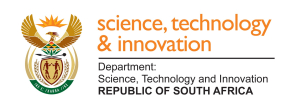GOSHA award winner - Selomina Phekelela's Journey of Growth in Heritage and Climate Journalism
23 September 2024
Selomina Phekelela, NRF SAASTA science journalism intern was recently awarded the Heritage Journalism award at the Golden Shield Heritage Awards (GOSHA) ceremony in Artscape, Cape Town, on 16 September 2024.
The National Heritage Council of South Africa (NHCSA) established GOSHA to celebrate and promote the country’s diverse and rich heritage.
In 2024, the 11th edition of the Golden Shield Heritage Awards celebrates three decades of South Africa’s democracy and rich cultural heritage.
“The coincidence of my 30th birthday aligning with the 30th anniversary of South Africa’s democracy holds a deep resonance for me. Whenever I am asked to sum up this significance, my response is a powerful statement of unity and strength: “Amandla Akuwe,” said Phekelela.
“Amandla Akuwe” acknowledges the struggles and triumphs of South Africa’s democracy and reminds us of the individual power and resilience within each of us.
The awards recognise people and organisations for their outstanding contributions to heritage, culture, and history.
Phekelela is a young journalist under the South African Agency for Science and Technology Advancement (SAASTA) umbrella, blossoming at News24’s Climate Future section.
In her award-winning articles, she delves into the nexus of environmentalism, heritage, and traditional wisdom.
Phekelela’s work demonstrates a holistic approach to climate journalism that harmonises cultural sensitivity with environmental responsibility.
She is a master weaver of complex scientific concepts, effortlessly transforming the mysteries of nature and the looming threats of climate change into stories that capture the imagination.
A writer’s roots
Clad in the vibrant loveLife youth organisation gear, she walked with determination up the steep gravel hill. She passed RDP houses with delicate, stick-fenced yards that often failed to contain the wandering cattle, sparking neighbourly quarrels.
And so began the journey of the talented and passionate journalist.
At the tender age of 19, Phekelela was already making strides as a Media Youth’s groundBreaker at the loveLife youth centre.
LoveLife is a nonprofit organisation that ensures South Africa’s youth have safety, good health, and opportunities. It uses a peer-led education model to address their challenges.
Armed with her tripod, camera, and MacBook, Phekelela roamed the community to capture the raw and real stories of the young people around her.
She was busy making waves of her own, interviewing youth about the issues that affected their lives, like alcoholism and unemployment.
A spark of inspiration flickered as journalists from GelezaNathi and Bona Retsang television youth programmes descended upon the loveLife youth.
Like seasoned masters sharing their craft, they taught Phekelela the art of editing, transforming her raw footage into crisp news segments gracing South African households’ screens.
Driven by her growing interest and the power she witnessed in journalism, Phekelela enrolled at Cape Peninsula University of Technology (CPUT) to pursue a qualification in the field.
Her leadership and brilliance shined like a beacon with every step of her journey.
At university, she quickly rose as a star student, earning the respect and admiration of her lecturers. Soon, they entrusted her with a task: to act as a mentor, sharing her knowledge and expertise with her peers.
When Phekelela first came to Cape Town, people doubted her potential because of her mother tongue. But she proved them wrong and showed that isiXhosa is a rich and powerful language that deserves recognition.
“There’s a misconception that this award is for my poetry, but it’s actually for my journalism. Still, I can understand the confusion, as I’ve also been recognised for my isiXhosa poetry, gracing stages across Cape Town and winning multiple awards,” she said.
“Language is part of our heritage, like a dialect or an accent, language is a bridge between generations, preserving our shared stories, experiences, and expressions,” said Phekelela.
Flying with the Greats
A legend in his own right, Dr Lebogang Lance Nawa, a scholar, author, and poet, was honoured with the Liberation Heritage Steward award.
According to Dr Lance, all humans are born with a pre-existing inheritance in the form of a rich environment.
As custodians of this earth, they are responsible for preserving and protecting it with both the tools of science and art creativity, added Dr Lance.
“These are the tools available to those talented in any of these fields to effectively perpetuate heritage for future generations. These are not exhaustive. There are more. Including science in the form of engineering and medicine, for instance,” he said.
Dr Lance also emphasised the crucial role of journalism in documenting history as it unfolds.
“Following the adage that ‘journalism is the first draft of history,’ it is important for human beings, especially journalists, to appreciate that every audio-visual and written text produced becomes references for use by researchers and historians to generate profound thoughts and translate them into knowledge about how the past and present inform the future,” added Dr Lance.
“For instance, Afrikaans has indeed evolved into a unique language different from its Dutch origin by drawing from local linguistics for purposes of practical naming and articulating items only found in the South African environment for which Dutch has no vocabulary,” he said.
Based on Dr Lance’s thinking, the integration of other cultures into an African base requires journalistic responsibility, as the alternative – the perpetuation of European cultural superiority over African culture – would be a form of cultural genocide.
For Dr Lance, the award was not just a recognition of his work but a culmination of a lifelong dedication to pursuing liberation and justice.
“The wisdom of those who came before us can be a vital resource in protecting the environment, and journalism can be a powerful tool for amplifying these voices,” added Phekelela.
“This award is a recognition of my journalistic prowess and a testament to the importance of indigenous knowledge and heritage in achieving sustainable development,” Phekelela said.
Phekelela will continue running her poetry workshops, threading scientific narratives with the human stories at their core.


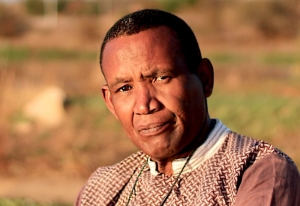
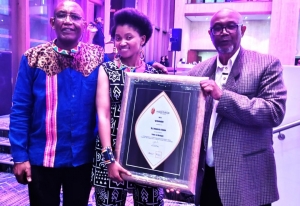
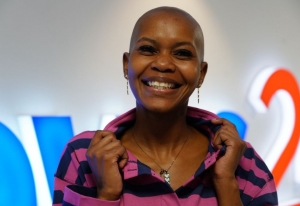
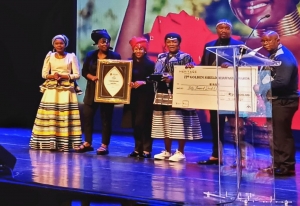
 The South Africa Agency for Science and Technology Advancement (SAASTA) is a business unit of the
The South Africa Agency for Science and Technology Advancement (SAASTA) is a business unit of the 